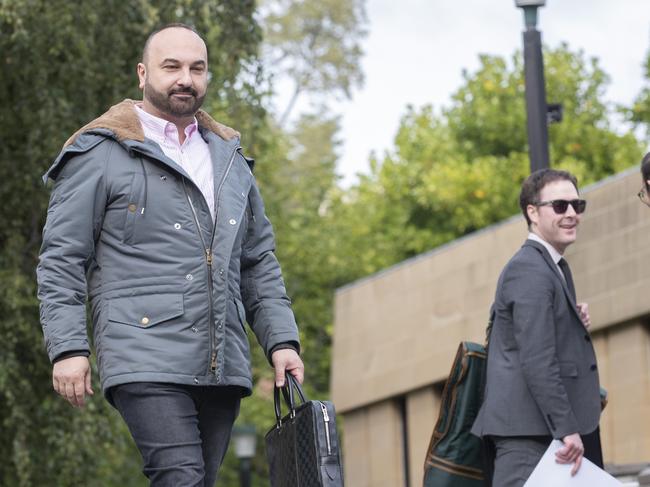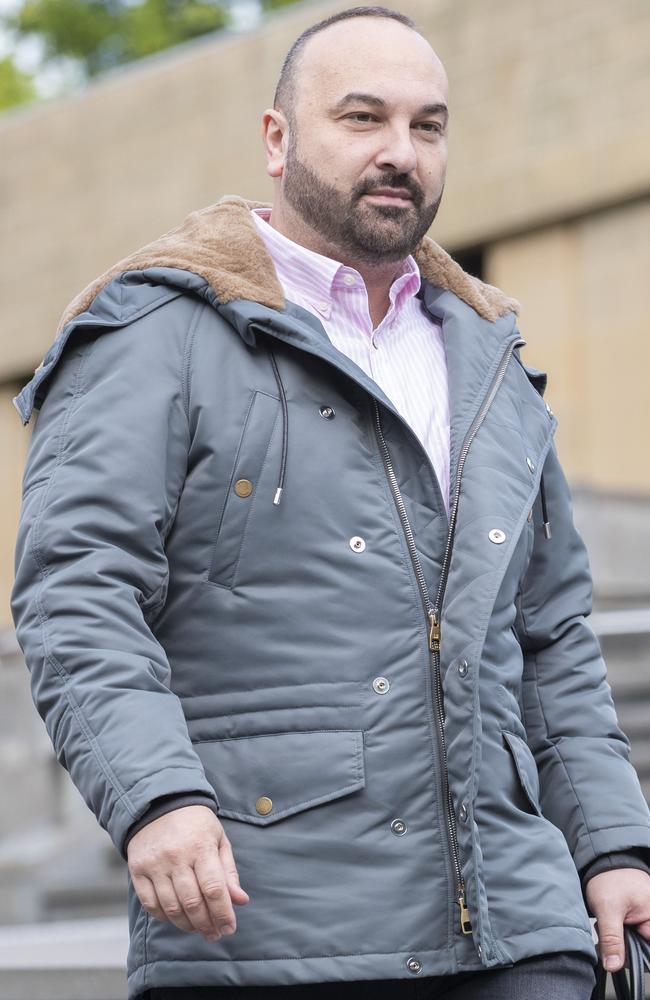$80m will battle of late property mogul Ali Sultan resolves after two years of legal clashes
After nearly two years of a high-profile court clash, the battle over the multimillion-dollar estate of late Hobart property mogul Ali Sultan has finally reached its conclusion.

Police & Courts
Don't miss out on the headlines from Police & Courts. Followed categories will be added to My News.
After nearly two years of a high-profile court clash, the will battle over the $60m to $80m estate of late Hobart property mogul Ali Sultan has finally been resolved.
On Wednesday, Supreme Court judge Michael Brett ruled that Mr Sultan’s last true will was made in July 2018, and that a number of wills made subsequently were invalid and did not represent his true intentions.
The estate will now be left to Ali Sultan’s three children – Sonia, Moe and Saleh – in equal shares.
Moe Sultan said Wednesday’s decision was “a huge victory for the Sultan family”.
“The entire family is united and committed to honouring Dad’s wishes and legacy, and today’s judgement enables us to get on with doing that,” he said.
He thanked everyone who had “stood by” the family, including his “exceptional” legal team, with Wednesday’s decision meaning that full control and ownership of Ali Sultan’s assets would pass directly to his three children.
A number of wills made post July 2018 had a number of significant differences, including the exclusion of Ali Sultan’s children, and distributing the residual estate instead to his grandchildren and to charity, and the gifting of annuities to various relatives.
The Lebanese-born Ali Sultan – described as a “self-made man” – died unexpectedly in January 2021 at age 73 after a bushwalk on kunanyi / Mt Wellington.
A key issue raised in last year’s hearing was that Mr Sultan did not have a strong grasp of written English, with his son Moe Sultan arguing his father did not know the full contents of a series of wills made after July 2018.

The long list of defendants included Integrity Commission chief commissioner Aziz Gregory Melick AO, known as Greg Melick, lawyer Damian Egan, Sultan Holdings accountant Mark Saltzman, lawyer Ian Creese, and Sultan Holdings project development manager Timothy Lucas.
They denied the claims at an early stage.
Moe Sultan’s younger brother Saleh, Ali Sultan’s friends Mezed Eid and Mohamad Eid, and cousin Rola Taychouri-Smith were also listed as defendants – but were not accused of wrongdoing.
In his published judgment on Wednesday, Justice Brett said a “compromise” had been reached between everyone involved, and granted letters of administration to Moe Sultan and his sister Sonia Sultan.
However he noted a court would not make such a grant solely because those who stand to benefit have agreed to a certain outcome – but that instead the court must be satisfied which is the last true will of the testator.
Justice Brett said Ali Sultan arrived in Australia with little, but immediately worked hard – with his labour and strong aptitude for business producing financial success.
Over the years, he acquired a number of commercial and residential properties, and by the time he died, controlled a “number of related entities” and “a significant portfolio” with his Sultan Holdings his “primary business vehicle”.
The judge also noted that Ali Sultan’s marriage to his wife Christine, who he wed in 1971, was in the process of dissolving, with “considerable acrimony” and “protracted and difficult property settlement proceedings”.
Justice Brett said he was satisfied the subsequent wills did not represent Ali Sultan’s true intentions, noting there was a considerable body of evidence supporting the claim he had a poor grasp of English, particularly in his ability to read and understand documents written in English.





